
It was the summer of 2009 when Andrew Todd Smith stood alongside his peers on the stage of Cambodian Television News with a trumpet in hand.
With backup dancers readying themselves behind him, he tuned his instrument, cleared his throat and waited anxiously for their queue to perform live in front of the entire country of Cambodia.
Smith faced challenges getting into BYU’s film program. It was extremely competitive. It was not until after he received a letter of recommendation from BYU’s Department of Theatre and Media Arts that he was accepted into BYU.
In order for him to receive the letter of recommendation, he needed to apply to the film school as though he were already a student at BYU. Then, he would need to apply once again once he became a student.
Once accepted into the program, Smith and his peers decided to shoot a documentary in Cambodia for their film class. Little did they know they would encounter the opportunity of a lifetime.

BYU funded the first summer trip to Cambodia in 2008 and sent Smith and his peers across the Pacific to the small country that was the home of 16.5 million residents. There, they began filming their documentary in 100-degree weather, standing in pools of boiling sewage and pulling nails and other sharp objects out of their boots.
The documentary, called “Victory River,” was about a family that worked collecting recyclables in exchange for money at an enormous landfill. During the filming of the documentary, the students grew closer to the family and often played music with children in the neighborhood.
“We often played songs with the families and children there for fun whenever we finished filming for the day,” Smith said. “We just bought our instruments from a nearby store and played a mix of American and Cambodian music.”
One day during that same Summer, Smith and his peers began exchanging jokes about making an all-American, Cambodian-singing band. They threw around Cambodian words and names until the name “Muk” stuck.
“Muk” translated to English means “Octopus,” but Smith said there was no real reason why they chose the name besides it sounding silly to them. It was then that Smith had the idea of sending emails to nearby news stations with the intent to have the band perform live. When they least expected it, the Cambodian Television Network responded.
“It was a total shot in the dark. I sent the email to CTN and I was completely surprised that somebody had actually responded” Smith said.
Not long after the email was sent, the owner of the Cambodian Television News responded asking for a demo video of the band playing Cambodian music. Fortunately, Smith and his peers were skilled in video creation and quickly stitched together multiple videos of themselves playing a few popular Cambodian songs with an audience track in the background.
“I honestly didn’t think anything of the email after we sent it. When we heard back, we jumped at the opportunity. Who wouldn’t?” the band’s percussionist Trevor Wright said.
The news station owner replied asking if Muk would be willing to play live on CTN at the end of Summer 2009. They gratefully accepted the offer and received a free trip back to Cambodia.
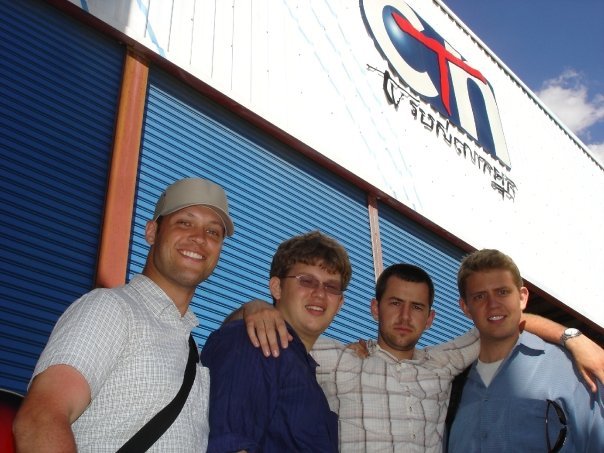

“The greatest part about being able to play for CTN was that we had the chance to go back to Cambodia for free. That was our ultimate objective.” Smith said.
Broadcasted in front of the entire country, the American band played Cambodian music live on national television. The crowd cheered for the young men as they sang popular Cambodian songs at the top of their lungs in unison with the enormous crowd. They would never forget that day.


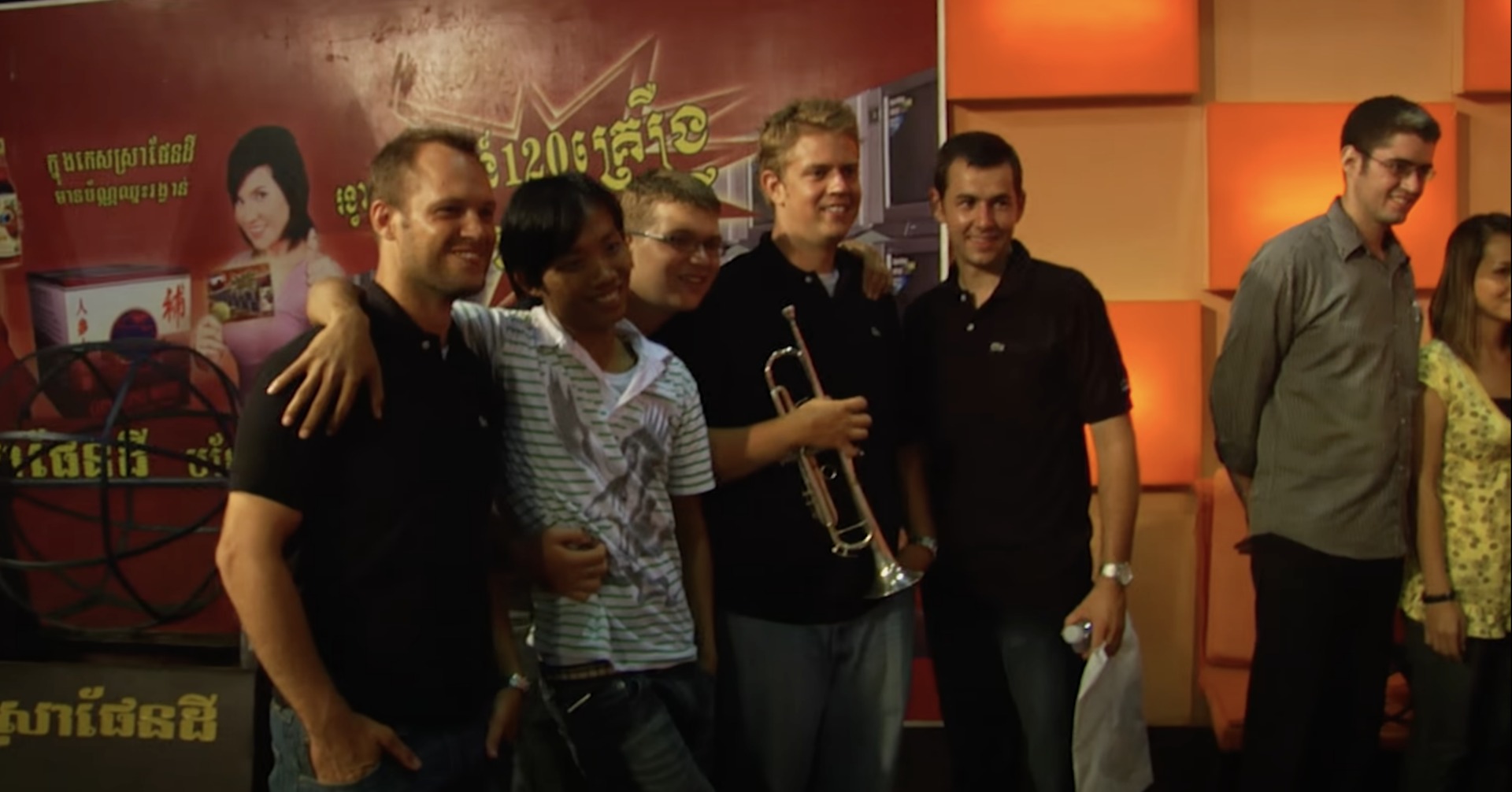
“The night before our performance on CTN, I remember we practiced a ton. All of us were worried about messing up in front of so many people, but we played really well, I’ll never forget the experience.” Smith said.
Smith also commented on the opportunity he had to rekindle national pride in Cambodians who lived in America. He said that thanks to his music, many Cambodians felt they should return to their home country and commit to making it a better place.
“We began getting messages on social media from Cambodians living in America that our music renewed their love for their mother country,” he said. “They decided to move back and build up their country, and that was really cool for us to see.”
Muk had become so famous in the country that other TV stations reached out for interviews, television shows and more live performances.
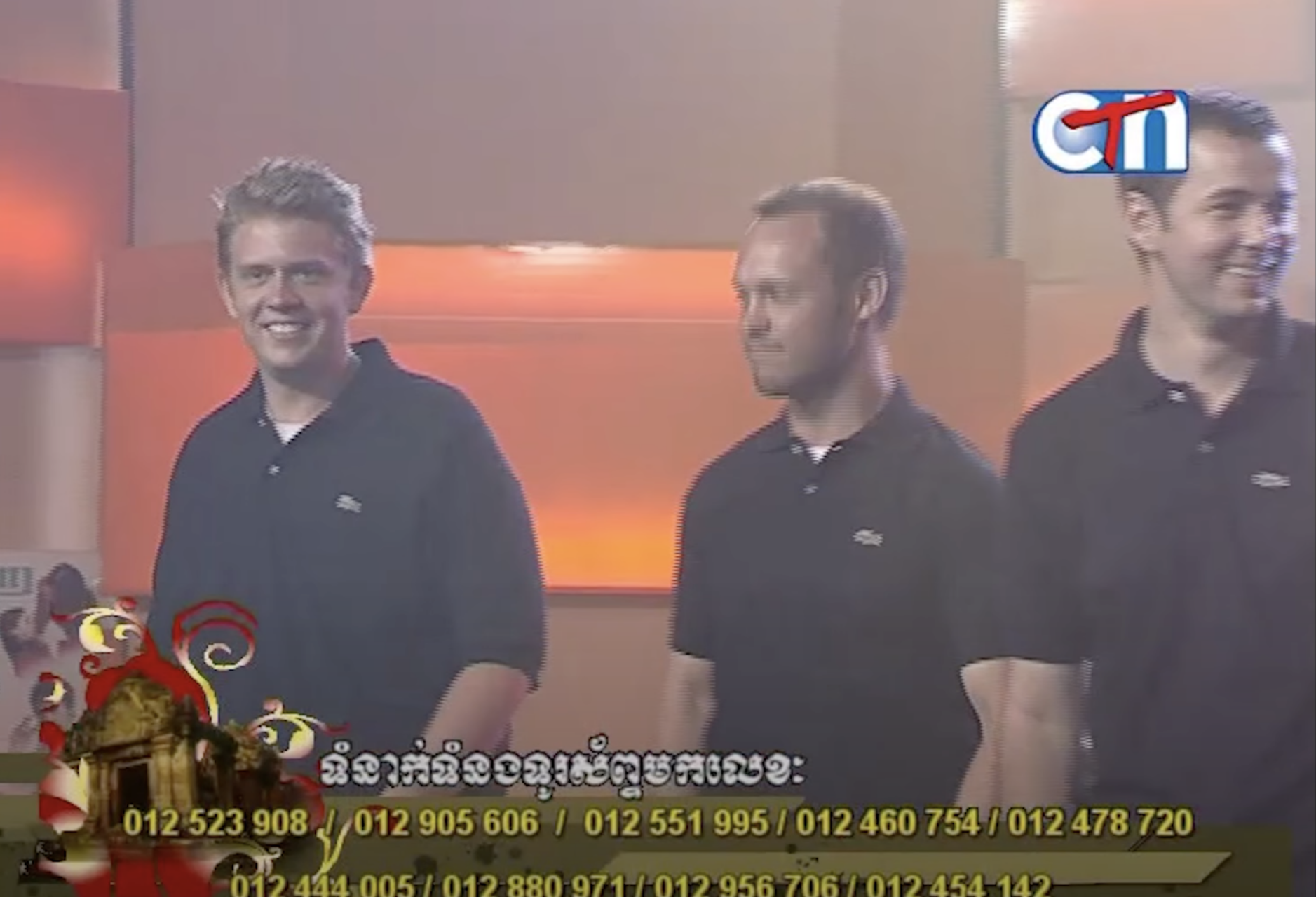

“There was so much momentum since our first performance at CTN that we couldn’t really get away from all the attention. It began slightly impacting the documentary we were originally trying to shoot here in Cambodia.” Smith said.
After finding time to finish shooting their documentary before the summer was over, Smith and his classmates noticed a few obstacles that arose as a direct result of them becoming celebrities in the country.
Both Wright and Smith both described it as difficult for their subjects to remain authenthic on account of the level of fame they had achieved in Cambodia.
“Gradually, they became less interested in shooting the documentary and more interested in just hanging out with us,” Smith said.
Fortunately, the students’ journey with Muk had begun towards the final stages of shooting their documentary and not much more footage was needed.
Smith’s wife, Amy Smith, recounted an experience she had with Muk after the young men returned to the United States from their trip.
“Any time we visit Cambodia we encounter so many people who would recognize Andrew. One time we were at a local market and a woman recognized him and then shouted to her friend across the entire market,” Amy Smith said.
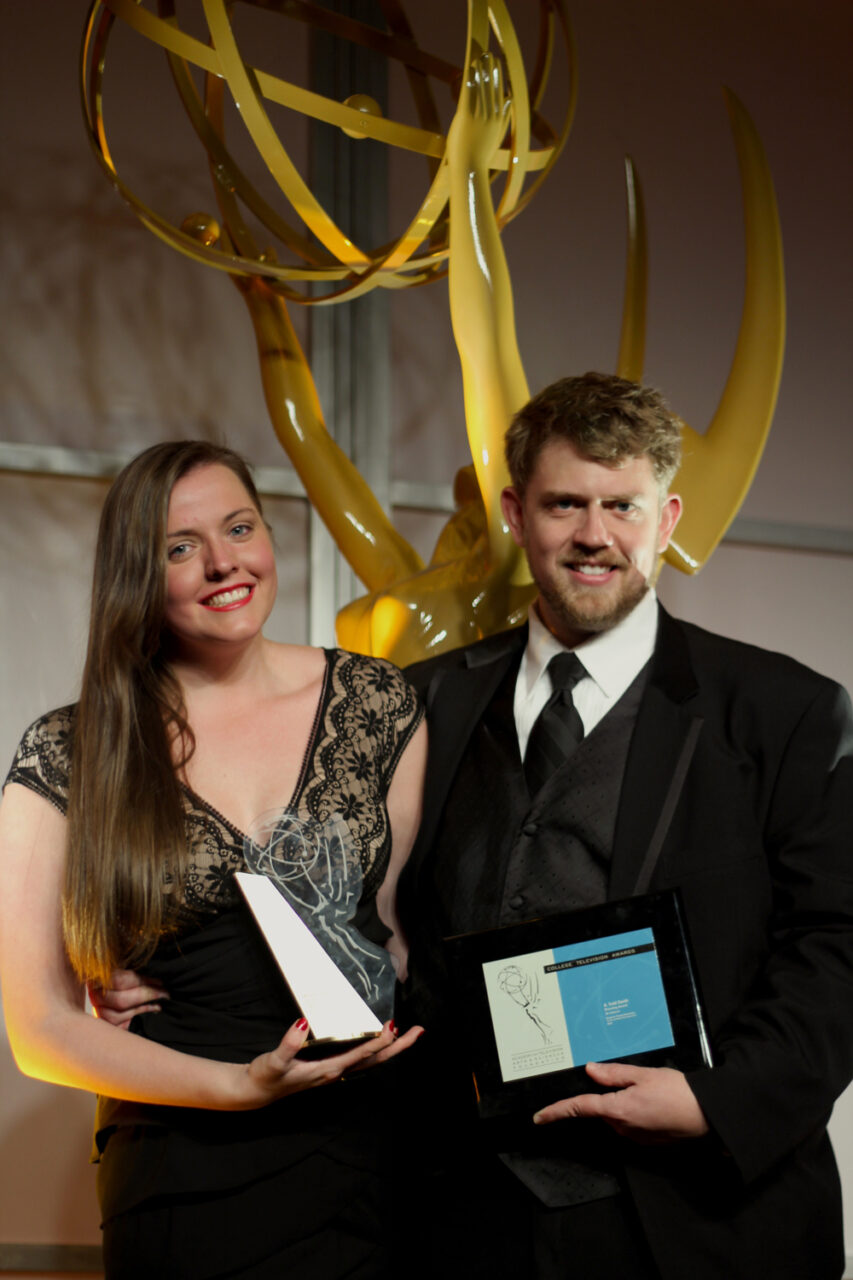
Amy Smith does not speak Cambodian, but she knew exactly why the woman was excited.
“It was so amazing to see how many people recognize Andrew’s face in the Cambodian context. Any time we go to a Thai restaurant, because they’re usually run by Cambodians, people are constantly coming up to him because they recognize him,” Amy Smith said.
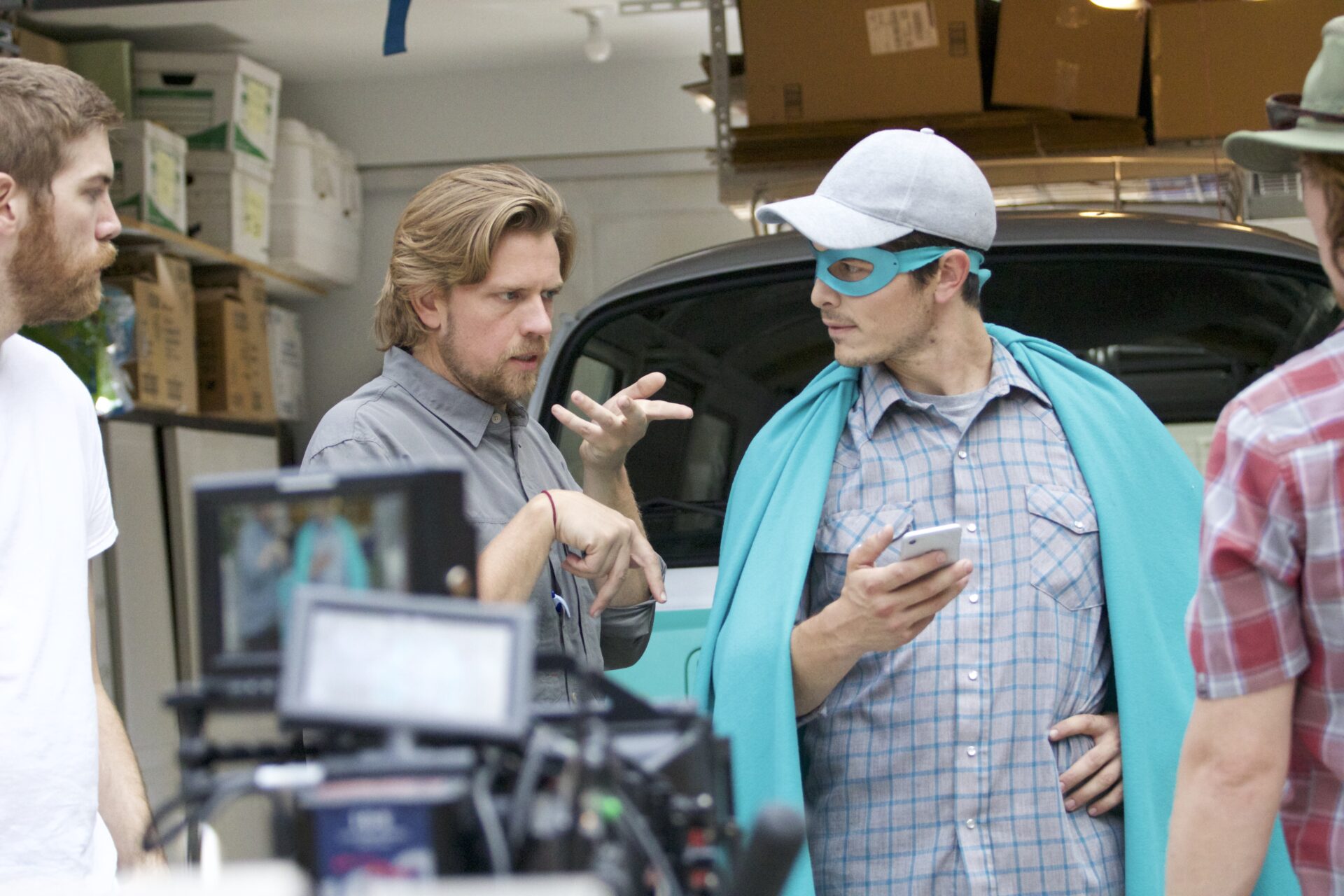
Looking back on his journey, Smith can recall many lessons he has learned from becoming famous in Cambodia. However, there is one that stands out to him and he continues to apply it in his life today.
“Don’t be afraid to act on things that you’re passionate about,” he said. “Don’t be afraid to take chances.”




